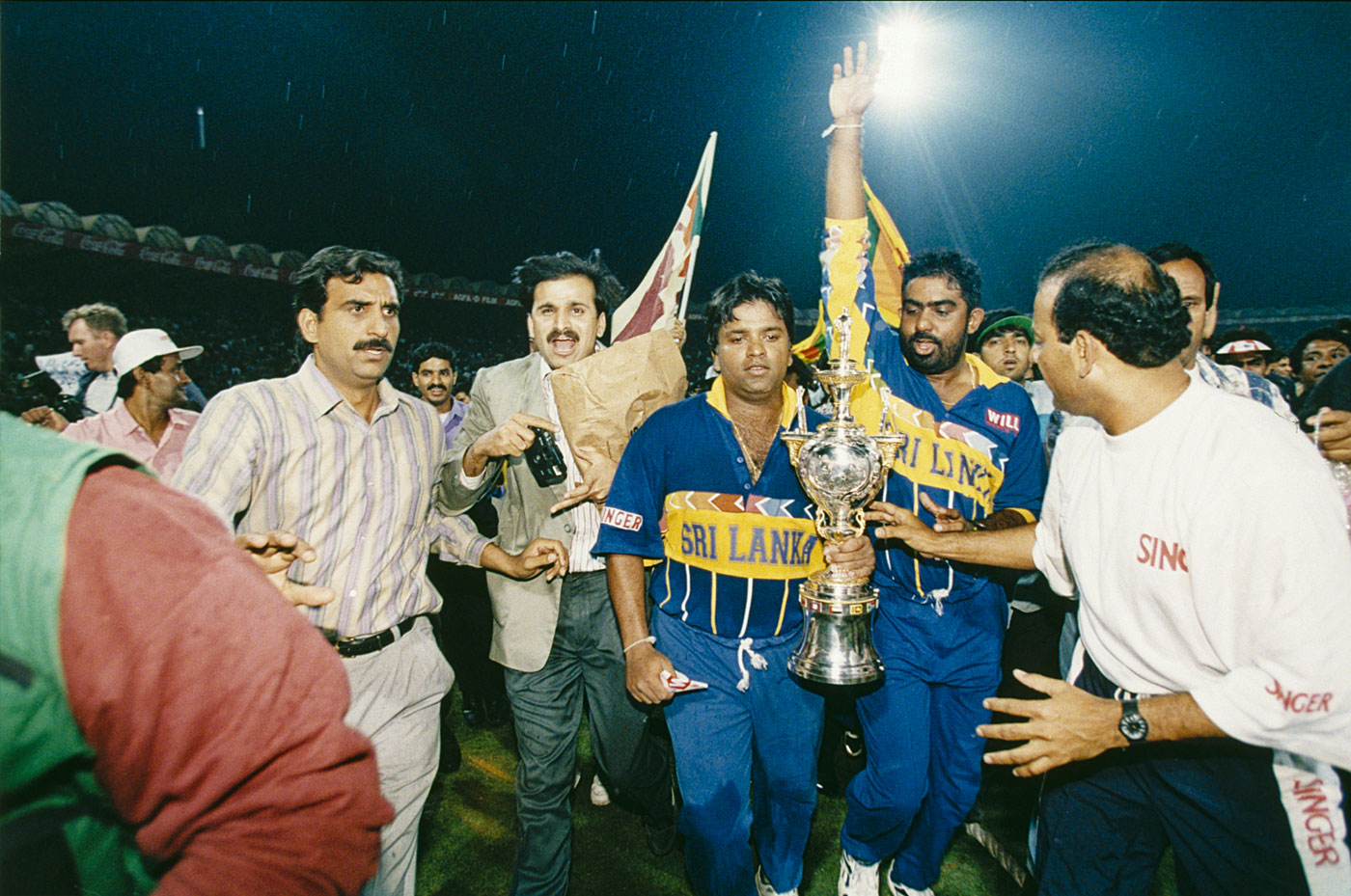A night to remember
David Hopps

Arjuna Ranatunga's celebrations in Lahore sparked off even more partying at home in Colombo © Getty Images
Colombo had known much grief in the weeks leading up to the World Cup final. The bomb on January 31 that killed about 90 people had brought terrorism back to the heart of the capital. And it undermined Sri Lanka's hopes that their co-hosting of the tournament would promote tourism and investment, as well as providing funds for an expansion of cricket facilities throughout the country.
Australia, having just been involved in a bitter series against Sri Lanka, had already voiced some reluctance to fulfil their fixtures in the country, on the grounds that some of their players had received hate mail and feared for their safety, for reasons connected with cricket rather than politics. The atrocity in Colombo justified their quick withdrawal. Even the pleas of the Sri Lankan Government, whose array of security measures included an offer to fly the team in from Madras or The Maldives, failed to change their minds.
West Indies soon followed Australia's example, without bothering to consult their players, leaving only two relatively minor sides, Kenya and Zimbabwe, to play fixtures which passed off without incident. That was only some compensation. In the early stages of the tournament, the mood in this most gracious and easy-going of countries was one of demoralisation and betrayal.
The night of March 17 provided handsome recompense. To be on Galle Face Green, a traditional Colombo meeting point overlooking the Indian Ocean, shortly after Sri Lanka's triumph over Australia in the final in Lahore was to witness a joyful outpouring of national pride. With most Sri Lankans preferring to watch the final in small family groups, the capital was eerily deserted for much of the day but, as night fell, the streets abruptly came alive to the blaring of car horns and the explosion of fireworks.
Some people had privately expressed their reluctance to join the Galle Face parade, fearing that there could be no more crushing time for the Tamil Tigers to launch another attack than at the moment of the country's greatest sporting achievement. But many suppressed their fears as tens of thousands streamed along the sea-front in just about every form of transport known to man.
Even in its most harrowing times, Sri Lanka has rung to the sound of laughter and it was impossible to walk a few yards along Galle Face Green without another invitation to join an impromptu street party. The walk back to the hotel as the sun began to rise was made more unsteadily. Whisky and arrack (the local firewater distilled from coconut) flowed, and Bob Marley music blared from the back of cars and open-top trucks, upon which rapturous youngsters danced precariously. Among the most soulful songs was 'This Land Belongs to Us', and such lyrics cannot be sung in Sri Lanka without a sense of underlying weariness caused by years of terrorist warfare.
Cricket had always been a unifying force, offering recreation for Sinhalese, Tamil, Moslem and Christian alike. Now it had given the nation a chance to forget. The schools in Colombo had only just reopened after the Tigers' warning to the Government to "build smaller coffins." Now young children wandered freely and ecstatically through the throng.
According to Sri Lankan folklore, Nadiya - the jackal - is despised as the lowest of all animals, because of its willingness to eat the crow, which is regarded as the dustbin of Sri Lanka. Australia's forfeit of their group match in Colombo had caused their High Commissioner to be greeted with the call of Nadiya - Hu, Hu, Hu- at the prize-giving ceremony following Sri Lanka's victory against Kenya in Kandy. As televisions focused on a defeated Australian team, the jackal sounded for a final time. It was the response of a country getting even, and relishing every minute of it.
David Hopps is a cricket writer on The Guardian.

